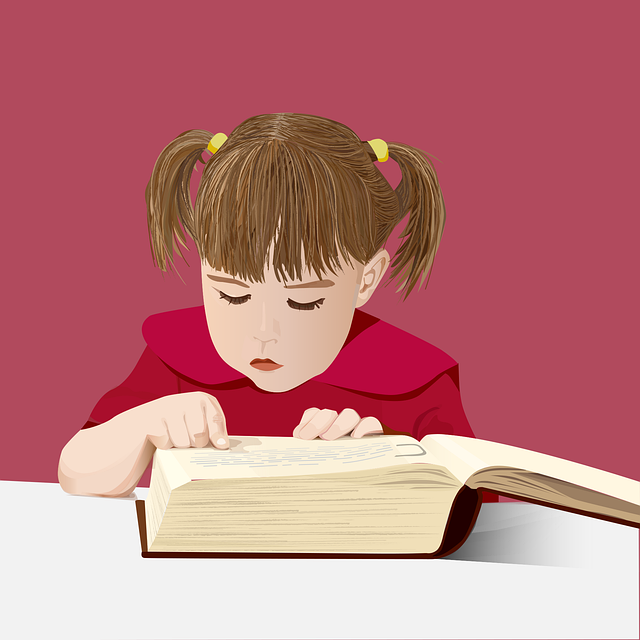
Children’s Historical Fiction Books: A Voyage Through Time and Imagination
Go back in time and venture on an exciting journey through the pages of historical fiction books for kids. From ancient civilizations to thrilling adventures of yesteryears, these captivating tales will transport young readers to different eras, sparking their imagination and curiosity.
Immerse your child in the fascinating world of historical fiction, where vivid details and engaging characters bring history to life. Whether exploring the pyramids of Ancient Egypt, sailing with pirates, or experiencing the excitement of the Wild West, these books offer a unique blend of entertainment and educational value.
Through the eyes of courageous protagonists, children will learn about historical events, customs, and cultures, making history come alive in a way that textbooks alone cannot. With captivating narratives and richly layered settings, these books provide a gateway into the past, fostering a love for learning and a deeper understanding of our world.
So join us on this thrilling adventure through time and imagination. Discover the power of historical fiction books for kids and watch as your child’s love for reading and history takes flight. Let their imaginations soar as they uncover the secrets of the past and create memories that will last a lifetime.
Advantages of Reading Historical Fiction Books for Kids
Reading historical fiction books provides a multitude of benefits for young minds. Firstly, these books foster a love for reading by offering engaging narratives that transport children to exciting and unfamiliar settings. By immersing themselves in historical events and contexts, kids develop empathy, critical thinking skills, and a sense of curiosity about the world. Moreover, historical fiction encourages cross-curricular learning as it combines elements of history, language arts, and social studies, enriching children’s overall educational experience.
Historical fiction also helps children better understand cause and effect, as they witness how past events shape the present and future. Through relatable characters and vivid storytelling, kids can empathize with different perspectives and gain insights into the complexities of human nature. Additionally, these books spark creativity and imagination, inspiring young readers to envision themselves in different periods and cultures. The benefits of reading historical fiction books extend far beyond entertainment, shaping young minds and nurturing a lifelong love for learning.
In a world inundated with distractions, historical fiction offers a refreshing escape into the past, providing a balance between entertainment and education. By delving into these stories, children not only expand their knowledge of history but also develop essential skills such as critical thinking, analysis, and empathy. Through the power of storytelling, historical fiction books for kids ignite a passion for exploration and discovery, transforming reading into a transformative and enriching experience.
Famous Themes in Historical Fiction Books for Kids
Historical fiction books for kids encompass a wide array of themes and settings, catering to diverse interests and preferences. From ancient civilizations to pivotal moments in history, these books offer a kaleidoscope of experiences that captivate young readers and spark their curiosity. Popular themes in children’s historical fiction include tales of adventure, mystery, friendship, and resilience, all set against the backdrop of historical events and settings.
One prevalent theme in historical fiction is the exploration of different cultures and societies, allowing children to gain a deeper understanding of global perspectives and traditions. By immersing themselves in these richly detailed worlds, young readers can broaden their horizons and appreciate the diversity of human experiences throughout history. Additionally, themes of courage, perseverance, and heroism resonate strongly in historical fiction, inspiring children to overcome challenges and embrace their inner strengths.
Another common theme in children’s historical fiction is the examination of social issues and injustices, shedding light on important topics such as civil rights, war, and equality. Through these stories, kids learn about the struggles and triumphs of individuals in the face of adversity, fostering empathy and compassion for others. By addressing complex themes in a relatable and accessible manner, historical fiction books empower young readers to engage with history in a meaningful and impactful way.
Historical Accuracy in Children’s Historical Fiction
Maintaining historical accuracy is a crucial aspect of children’s historical fiction, ensuring that young readers receive a reliable and informative portrayal of the past. While historical fiction allows for creative liberties in storytelling, authors must strive to incorporate accurate details, settings, and events to provide an authentic representation of the time. By balancing factual accuracy with engaging storytelling, authors can create a compelling narrative that educates and entertains children.
Authors of children’s historical fiction often conduct extensive research to ensure the accuracy of their depictions, consulting primary sources, historical documents, and experts in the field. By immersing themselves in the historical context, authors can recreate the sights, sounds, and emotions of a bygone era, transporting young readers to a vivid and immersive world. Additionally, authors may include author’s notes or bibliographies to provide further context and encourage readers to explore the historical background of the story.
While some degree of artistic license is permissible in historical fiction, authors must strike a balance between creativity and authenticity to maintain the integrity of the narrative. By blending historical facts with compelling storytelling, children’s historical fiction can effectively educate and inspire young readers, fostering a deeper appreciation for history and a thirst for knowledge.
Top Historical Fiction Books for Kids by Age Group
When selecting historical fiction books for kids, it’s essential to consider age-appropriate content and themes that resonate with young readers. Here are some top recommendations for historical fiction books categorized by age group, providing a diverse selection of stories that cater to different interests and reading levels.
Early Readers (Ages 6-8)
- “Magic Tree House” series by Mary Pope Osborne: This beloved series follows siblings Jack and Annie as they embark on time-traveling adventures to various historical periods and locations.
- “Who Was?” series by various authors: These engaging biographies introduce young readers to influential figures in history, making learning fun and accessible.
- “I Survived” series by Lauren Tarshis: Gripping tales of survival set against historical disasters and events, capturing the bravery and resilience of young protagonists.
Middle-Grade Readers (Ages 9-12)
- “Number the Stars” by Lois Lowry: A poignant story set during World War II, exploring themes of bravery, friendship, and resistance in Nazi-occupied Denmark.
- “Island of the Blue Dolphins” by Scott O’Dell: A classic tale of survival and resilience based on the true story of a Native American girl stranded on an island off the coast of California.
- “The Watsons Go to Birmingham—1963” by Christopher Paul Curtis: A moving novel that follows an African American family during the Civil Rights era, highlighting themes of family, history, and social justice.
Young Adult Readers (Ages 13+)
- “Salt to the Sea” by Ruta Sepetys: A gripping historical novel that follows four refugees during World War II, shedding light on the little-known tragedy of Wilhelm Gustloff.
- “Code Name Verity” by Elizabeth Wein: A riveting tale of friendship and espionage set during World War II, exploring themes of loyalty, sacrifice, and resilience.
- “The Book Thief” by Markus Zusak: A haunting and beautifully written story set in Nazi Germany, narrated by Death and centered around a young girl’s love for books and words.
Tips for Selecting the Right Historical Fiction Books for Kids
Choosing the right historical fiction books for kids involves considering various factors such as the child’s age, interests, and reading level. Here are some tips to help you select engaging and educational historical fiction titles that will captivate young readers and spark their curiosity about the past.
- Consider the child’s age and reading level: Tailor your book selections to match the child’s developmental stage and reading proficiency, ensuring that the content is appropriate and engaging for their age group.
- Explore diverse historical periods and settings: Introduce children to a variety of historical eras and cultures, allowing them to discover different perspectives and experiences from around the world.
- Look for well-researched and accurate portrayals: Prioritize books that maintain historical accuracy while offering an engaging narrative, ensuring that young readers receive a reliable depiction of the past.
- Encourage discussions and reflections: Engage children in conversations about the historical themes and events depicted in the books, encouraging them to reflect on the significance of history and its relevance to the present.
- Visit libraries and bookstores: Explore curated book lists, recommendations, and displays to discover new historical fiction titles that align with the child’s interests and preferences.
- Consider reading together: Share the experience of reading historical fiction with your child, discussing the story, characters, and historical context to deepen their understanding and enjoyment of the book.
The Impact of Historical Fiction on Children’s Understanding of History
Historical fiction plays a crucial role in shaping children’s understanding of history, offering a personalized and immersive lens through which they can explore the past. By experiencing historical events through the eyes of fictional characters, children develop a deeper connection to the people, places, and moments that have shaped our world. Through engaging narratives and vivid descriptions, historical fiction breathes life into history, making it accessible, relatable, and memorable for young readers.
One of the key impacts of historical fiction on children is its ability to humanize historical figures and events, allowing kids to empathize with the struggles and triumphs of individuals from the past. By presenting history in a narrative form, rather than a dry recitation of facts, historical fiction invites children to emotionally invest in the stories and characters, fostering a sense of connection and empathy. This emotional engagement not only enhances children’s retention of historical information but also cultivates a deeper understanding of the complexities of human experiences throughout time.
Furthermore, historical fiction encourages critical thinking and analysis as children navigate the moral dilemmas, challenges, and conflicts faced by characters in historical contexts. By grappling with issues of justice, power, and identity, young readers develop empathy, perspective-taking, and a nuanced view of history that goes beyond textbook descriptions. Through the power of storytelling, historical fiction stimulates curiosity, sparks questions, and inspires a lifelong interest in exploring the past, laying the foundation for a well-rounded and informed understanding of history.
Historical Fiction Book Series for Kids
For young readers who can’t get enough of historical fiction, book series offer a fantastic way to delve deeper into different periods and adventures. Here are some popular historical fiction book series that will captivate children and keep them eagerly turning the pages.
“Dear America” series by various authors
- This beloved series features fictional diaries of young girls and boys from different historical periods, offering firsthand accounts of significant events and moments in history.
“My America” series by various authors
- A companion series to “Dear America,” “My America” follows the experiences of children from diverse backgrounds during pivotal moments in American history, providing a personal and engaging perspective on the past.
“American Girl” historical fiction series
- Each American Girl character represents a specific period in American history, allowing young readers to immerse themselves in the daily lives, challenges, and triumphs of girls from different eras.
“Horrible Histories” series by Terry Deary
- Combining humor with historical facts, this series offers a quirky and entertaining take on various historical periods, events, and figures, making learning about history fun and engaging for kids.
“I Was There” series by various authors
- These interactive historical fiction books place young readers at the heart of significant historical events, allowing them to experience history firsthand through the eyes of fictional characters.
Resources for Further Exploration of Historical Fiction for Kids
To continue the journey through the fascinating world of historical fiction for kids, here are some resources that will enrich and expand children’s exploration of history through literature.
- Historical fiction book clubs: Joining a book club dedicated to historical fiction for kids can provide opportunities for discussion, discovery, and shared reading experiences with peers.
- Online resources and websites: Explore online platforms that offer curated book lists, reviews, and recommendations for historical fiction books suitable for children of all ages.
- Educational websites and museums: Visit educational websites and museums that focus on history and literature, offering interactive exhibits, resources, and activities related to historical fiction for kids.
- Author events and book signings: Attend author events, book signings, and literary festivals featuring authors of historical fiction for kids, providing opportunities to engage with creators and discover new titles.
- Library programs and workshops: Participate in library programs, workshops, and reading challenges centered around historical fiction, fostering a love for reading and history in a supportive and educational environment.
The Power of Historical Fiction in Sparking Children’s Curiosity and Love for History
As we conclude our exploration of historical fiction books for kids, it becomes evident that these captivating stories hold immense power in sparking children’s curiosity, empathy, and love for history. By immersing young readers in vividly depicted worlds of the past, historical fiction opens doors to new perspectives, experiences, and knowledge, transforming the study of history into a vibrant and engaging journey of discovery.
Through the pages of historical fiction, children not only learn about the events and people of the past but also develop essential skills such as critical thinking, empathy, and a deeper understanding of human nature. By exploring different periods, cultures, and experiences through the eyes of relatable characters, kids embark on a transformative journey that enriches their minds and hearts, fostering a lifelong love for learning and exploration.
Let us continue to celebrate the magic of historical fiction books for kids, as they transport us across time and space, ignite our imaginations, and illuminate the tapestry of history with the vibrant colors of storytelling. May these stories inspire young readers to continue on their adventures through the annals of time, creating memories that will last a lifetime and instilling a passion for history that will endure through the ages.






